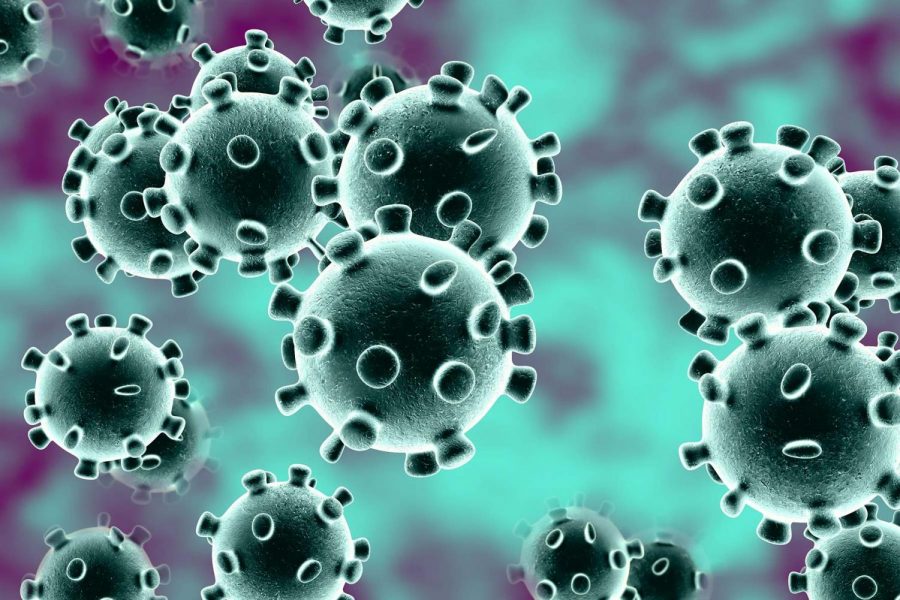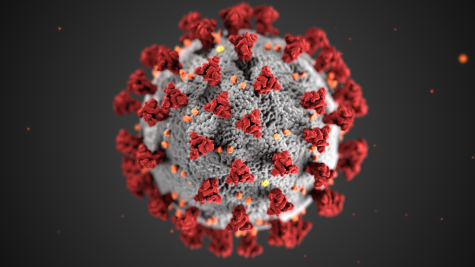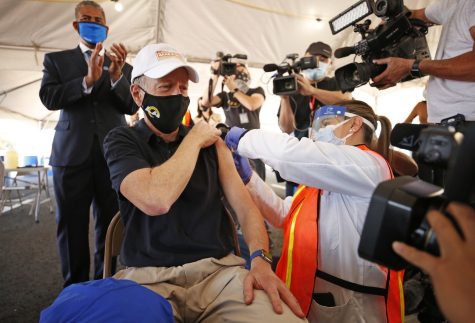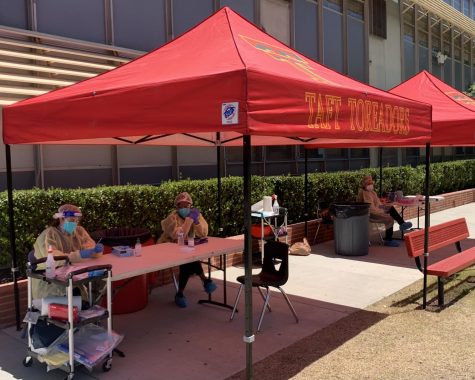Origin of the Coronavirus
The Coronavirus or COVID-19 has been the most recent pandemic, effecting 125,000 globally, as of March 13. It has caused global hysteria and led to countries closing their doors completely. But where did it come from? And, more importantly, why has it spread so quickly?
The Coronavirus is said to have originated from bats. The virus is found in humans as well as camels, cattle, and cats. That being said, it’s rare that it spreads from humans to animals. According to “How COVID-19 spreads”, the virus is transmitted through human contact, and just being near an infected person may infect you as well. This can happen if the infected person coughs or sneezes and it is inhaled (unintentionally of course). Typically, the virus spreads through saliva or mucus droplets in the air up to six feet around the carrier. It can also be spread through objects and surfaces. If an individual touches an object an infected person has touched and they rub their eyes, mouth, or nose, there is a very high chance they are infected too. Countries worldwide are dealing with this pandemic. People who have lied about their illness and/or travel history have been confined. Many hospitals have been built in Wuhan because of how many cases there have been. Things in China seem to be calming down for the most part, but other countries are all handling the situation differently.
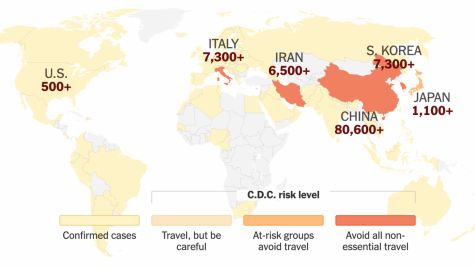
There have been 126 recorded COVID-19 cases and nine deaths in the US, the majority of which being in Washington and California. US Military labs are working to find a vaccine and the FDA authorized workers to use a larger selection of face masks and other protective masks. There have been multiple concerns regarding testing kits. The US has been able to perform only 3,600 tests on patients while other countries in Europe and like South Korea have been testing daily.
The outbreak in Europe began in Italy, with 100,000 people quarantined and 79 deaths. Schools closed as well as multiple parks, community swimming pools, and other public places, to reduce the risk of the virus spreading even further. Together, France and Spain have 400 cases. Airlines have been blocked and borders have been closed. The United Kingdom has also been testing people to see if they are infected. About 14,000 people have been tested in the UK.
South Korea has the largest number of cases outside of mainland China. The South Korean government has suggested they budget $9.8 billion for response and recovery. The government has swiftly rolled out testing all across the country and there are even drive through testing booths, where people can get tested in minutes without leaving their cars.
Iran and the Middle East have had 2,300 cases and 77 deaths. If people try to leave Qom, the city where the outbreak started, and they have a fever or any other symptoms of the Coronavirus, they will be quarantined. Iran has also released 54,000 prisoners to prevent others from getting infected. They have also closed all public spaces for two weeks and are banning people from traveling in or out of the country.
Africa and Latin America have reported their first few cases and it has raised some concern about how much the virus is spreading. WHO (World Health Organization) has warned that an outbreak could hit harder in Africa than it did in China because of the lack of hygiene practices in those countries. Only 42% of Nigerians have access to soap and water and 25% have no access at all. The continent is taking precautionary measures to keep the virus spread to a minimum. They’ve begun checking borders and entry ports. Experts from the WHO have been sent to vulnerable countries, helping them with lab equipment to perform accurate tests. In Mexico, Argentina, Brazil, Chile, Ecuador, and the Dominican Republic, cases have been confirmed.
It is imperative that you wash your hands for at least 20 seconds with soap and warm water as many times as you can throughout the day, cover your mouth and nose whilst you cough and sneeze, check to see if the meat or eggs you are eating is thoroughly cooked, and try to avoid contact with others, especially if they are showing signs of the virus. If you are experiencing respiratory issues, fever, cough, shortness of breath and or breathing difficulties, please see a healthcare professional right away as these symptoms could potentially be the Coronavirus.

I am 14 and a freshman at Taft Charter High School. I am a copy editor for the Taft Tribune. I'm also on the tennis team, I hope journalism helps me become...


